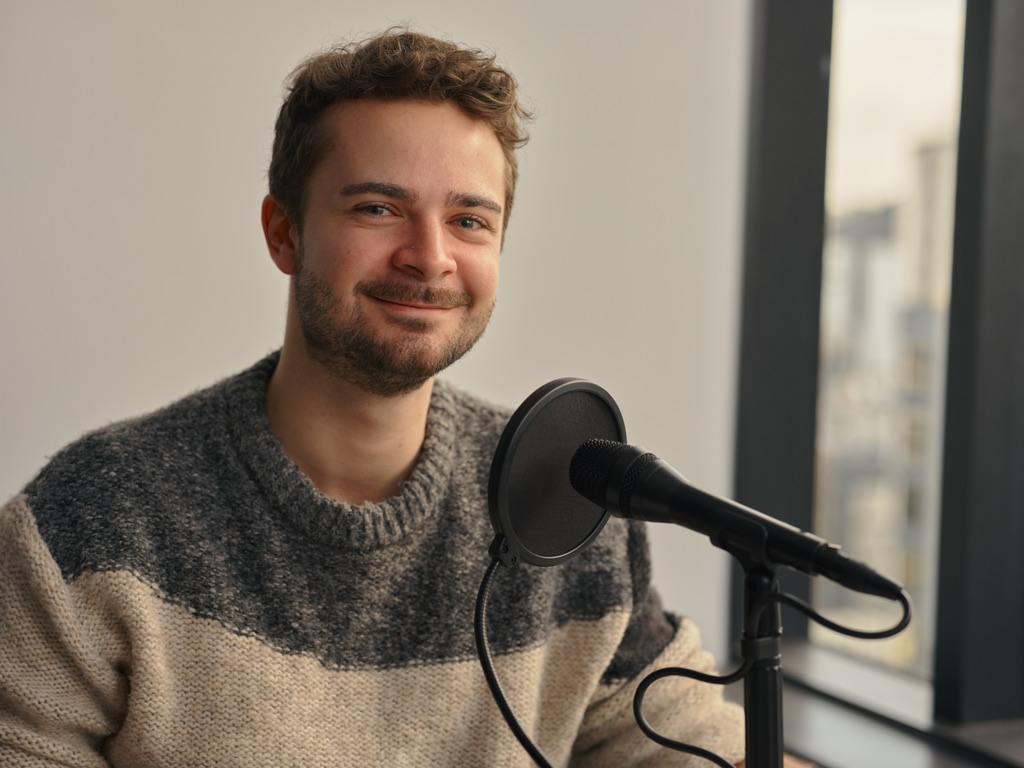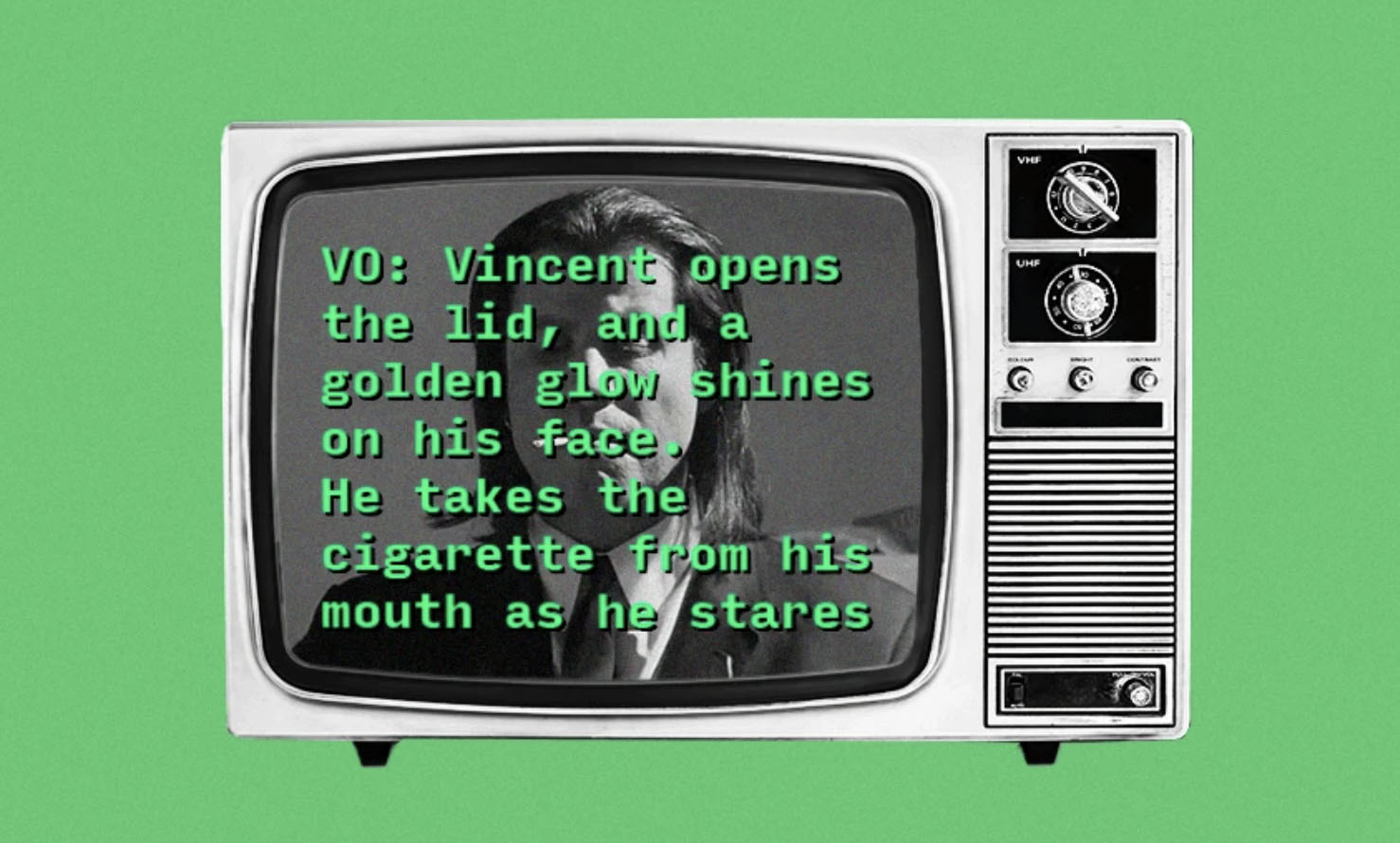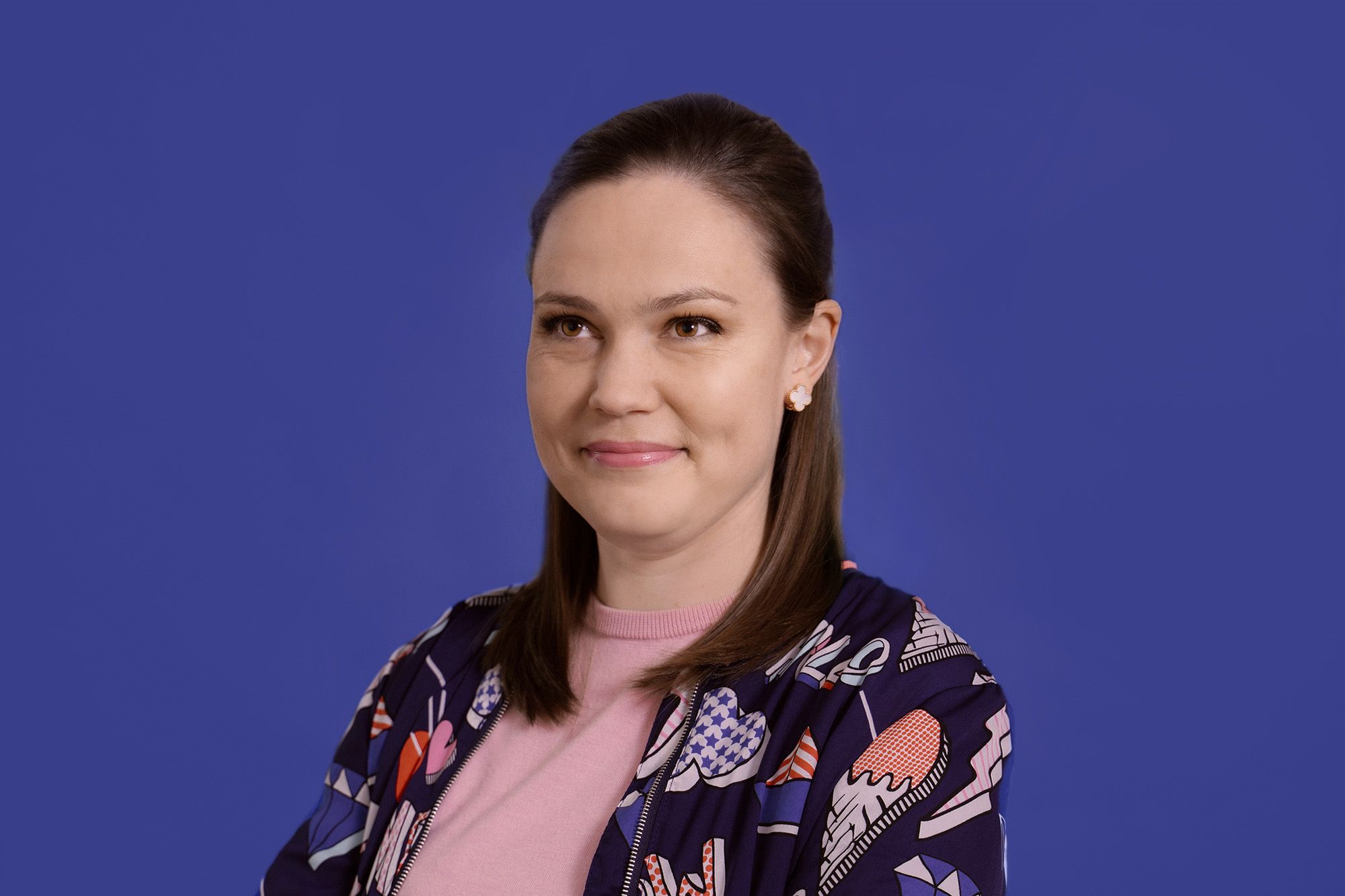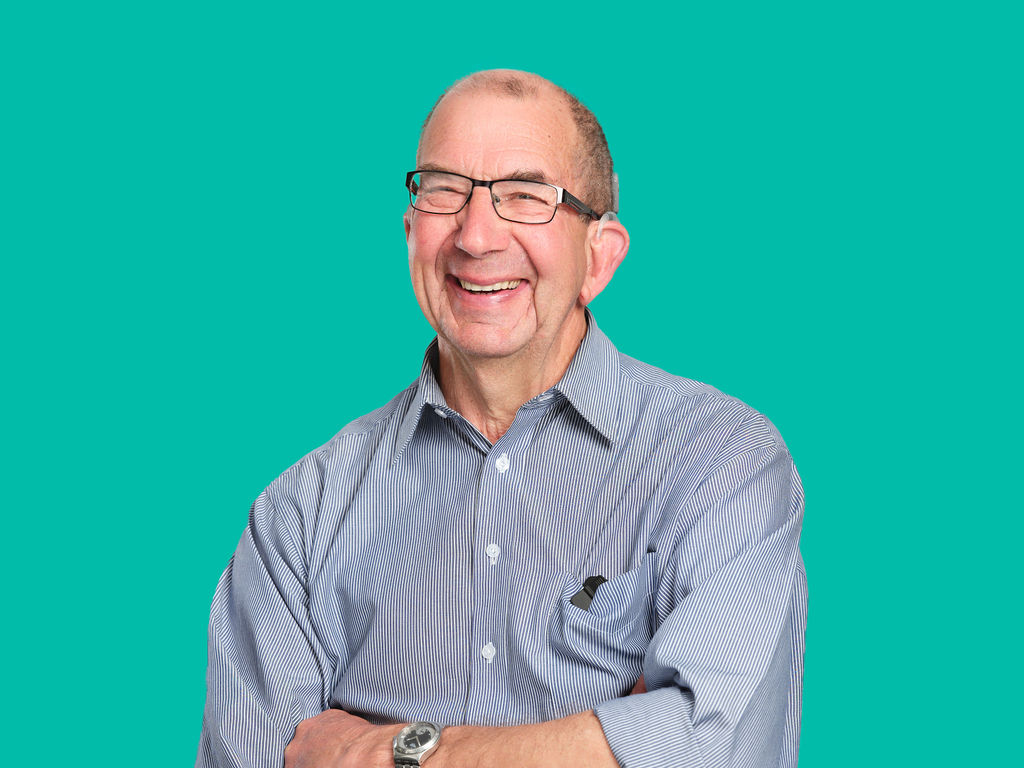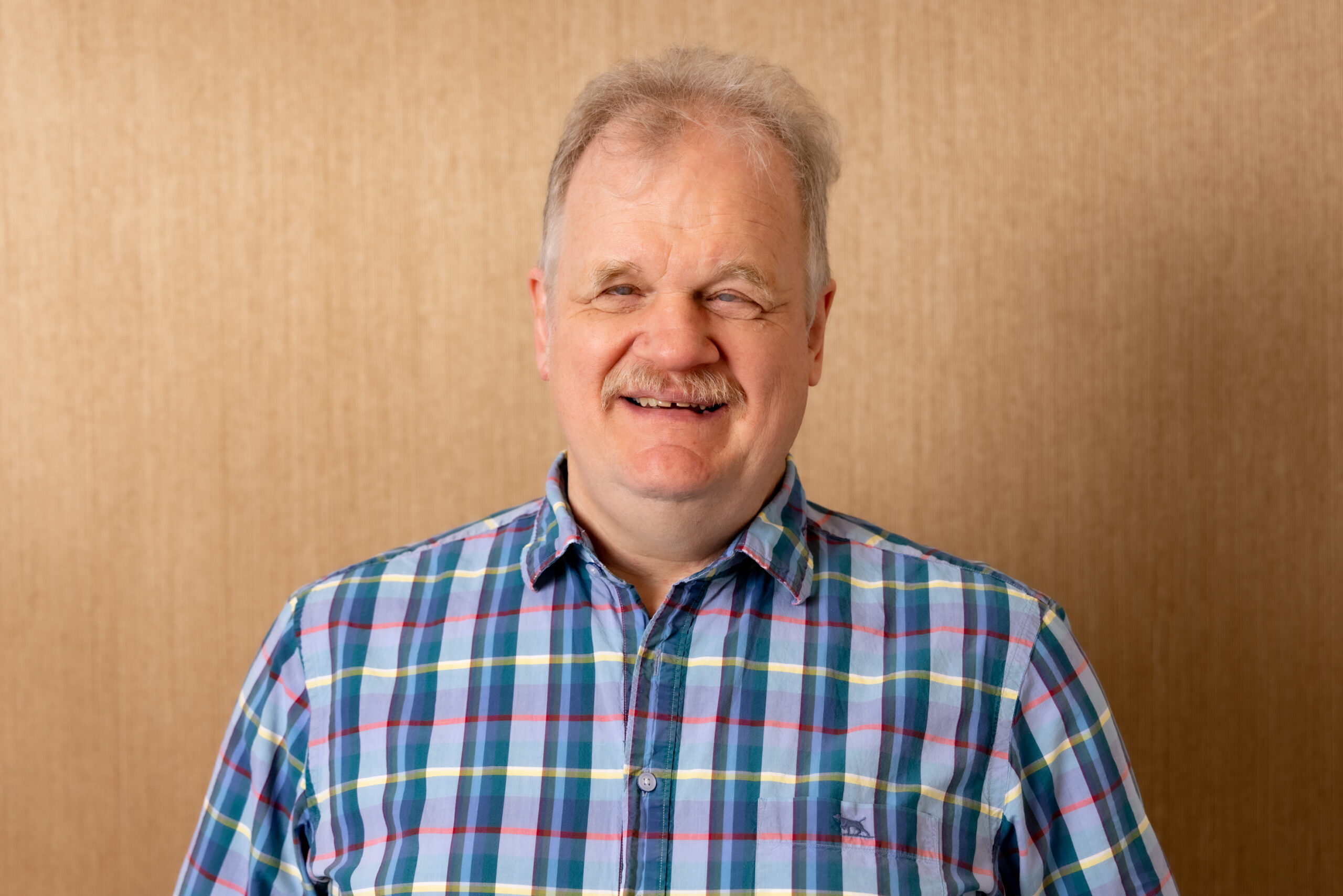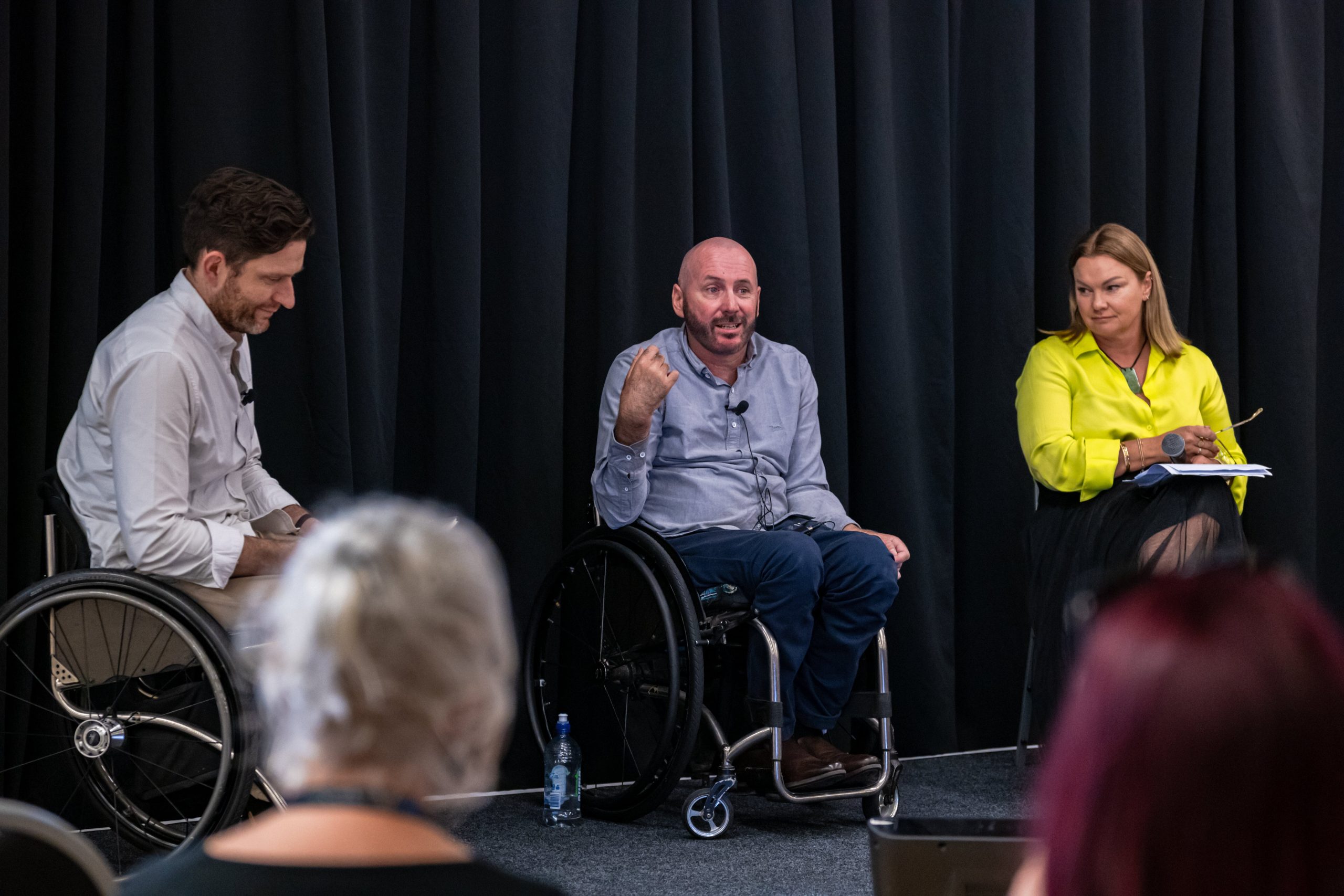
During the annual SPADA conference this year, our CEO Dan Buckingham facilitated a panel with Jai Waite from Sweet Productions and Rachale Davies from Boxed Media, discussing the sometimes-challenging territory of making content which amplifies disabled people’s voices. It’s a tricky area to navigate for the uninitiated, which can result in stories about the disability sector not being made at all, for fear of getting it wrong.
The discussion was centred around two projects that Jai and Rachale were involved in: for Jai, a three-part documentary called Wheel Blacks: Bodies on the Line, and, for Rachale, a digital series made for RNZ called This is Wheel Life with Soph & Indy.
Wheel Blacks is a sports doco following the journey of New Zealand’s rugby wheelchair team as they try and qualify for the Paralympic Games. From the trailer played, it’s clear that it follows familiar beats of struggle that anyone who’s watched a sports documentary will recognise: adversity, grit, feelings of hope and passion. It’s a life-affirming universal story inevitably grounded in its main characters, who are navigating full lives of work, family and training, as well as disability.
Something which stuck out to me during the panel was the element of trust involved in gaining intimate access to players day-to-day routines, and the importance of the crew in ensuring that people feel comfortable during their most vulnerable moments. Jai, who has previously been a Wheel Black and so knew many of the people on the team already, talked about the essentialness of building relationships between, for example, the soundies and the subjects of the documentary, because they’re the ones who are getting up close and personal with clipping on and adjusting mics.
Trust also arose during talks with Rachale, who is able-bodied but has had years of experience working with the disability sector while producing Attitude. Gaining that trust takes time, and you really can’t make anything without it.
I found it interesting when Rachale talked about working with Soph and Indy and her responsibility in crafting narratives about disability, and the difference in talking to a primarily disabled audience and then a more general audience, who may not have much experience with disability in their own lives. Wheel Life was pitched as a sort of poppy, entry-level way to enter that world, a method of talking about real issues – like the bureaucracy of getting adequate funding for building an accessible home, or sex and relationships – without alienating audiences. Rachale floated the possibility of getting more serious, or into the nitty-gritty, in Season 2. But this did hammer home the point that, in many cases when people are making for general audiences, there’s still an expectation that this may be one of the first interactions they have with a show or film featuring disability.
At the end of the panel, there was a question from a Producer in the audience who wanted to know how they could accommodate accessibility when decisions must be made so quickly in the screen industry, with very little lead time, and so many other issues on the go. They gave the example of working on a set in a very old building, with lots of stairs, and not knowing that there was someone on set that day who needed wheelchair access. “I felt, you know, shit about it,” she said.
This sort of anecdote is emblematic of a gap in the market – people don’t know where to go, even with good intention, to partner with people that may have a disability, whether that’s in front or behind the camera. So what happens is that they just don’t. Of course, some of that responsibility should be on them – where there’s a will, there’s a way, right – but it does expose a clear problem.
Dan, who is also part of the newly reformed Disability Media Collective, noted that they were in the early stages of coming up with a tool for facilitating just that – in a similar way to how an Intimacy Coordinator is responsible for the safety for actors and acting as their advocate in regards to intimate scenes.
I feel like the key takeaway from that conversation, though, was that it can sometimes be as easy as bringing it up with the person themselves and including them as part of the solution from the get-go. As Jai pointed out, he is well-versed in navigating issues of accessibility and may have encountered the problem in question countless times before. It seems like common sense, but, again – there’s a sensitivity there that seems to act as a barrier to people reaching out.
Plus, you probably shouldn’t assume anything; these things are very much individualistic decisions. Dan, for example, talked about his trip to Papua New Guinea, which was an amazing opportunity – and he was willing to have people carry him on their back as a work-around the lack of accessibility. It’s safe to say not everyone would be up for that.
You can watch This Is Wheel Life With Soph & Indy on RNZ here.
Wheel Blacks: Bodies on the Line is coming soon to Prime, Sky TV and Neon.
